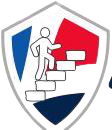Quality Assurance in Pharmaceutical Industry
Introduction
Quality assurance is the key department in the pharmaceutical industry. Quality assurance (QA) is the central point of all activities performed in a pharmaceutical company, all work goes through the QA department’s approval like research, Raw Material Store, quality control, manufacturing, and sales. QA ensures the pharmaceutical products are manufactured to a safe and consistent standard of quality. QA department is responsible for allowing a range of practices that results in a quality product manufactured. Pharmaceutical companies effort to manufacture high-quality products to maintain their reputation and increase their profit and serve the best quality medicines for mankind. The role of QA is to meet all aspects of Pharmacopoeia standards and produce a product that is up to the mark of all parameters in quality checkups.
Role of Quality Assurance in the Pharmaceutical Industry
Quality Assurance has a wide role in the pharmaceutical manufacturing Company. In a pharmaceutical manufacturing company, all work starts and ends at the quality assurance level, As per laid SOPs in the company nobody is allowed to work out of SOP, and the SOPs are fully controlled and implemented by QA. Here all functions of Quality Assurance are given in detail:
Quality Assurance role in the raw material store
All incoming raw materials, APIs, Excipients, Dissolvent, Chemicals are primarily verified by QA department personnel, they will check thoroughly the bill number, batch number, and mfg. date, expiry date, Vendor’s details, manufacturer’s details whether the container is intact in packing seals and labels. If all parameters are passed in visual inspection then the material proceeds to the next step which is a sampling of the same.
The sampling process is done under the supervision of QA department personnel along with Quality Control personnel and the Store in charge. The Raw material will be quarantined until the sample report of testing does not generate.
Quality Assurance role in Quality Control
Quality Assurance has parallel liability in the quality control department along with QC. In the QC department, every testing procedure starts following the SOP issued by QA, and the supervision of QA is to be maintained continuously in all analysis activities.
QA has a liability to issue SOPs for all activities along with the operating procedure of all instruments in the quality control department. Validation of all testing procedures and instrument performance is also QA’s responsibility. QA in a prescribed time period performs validation of processes and equipment performance’s validation.
Quality Assurance role in Production
Quality assurance has a vital role in the production department of any pharmaceutical manufacturing company. Providing SOPs for the manufacturing processes and SOPs for machinery operating is also QA's responsibility. Every manufacturing process has a Master formula for different products, compositions, and dosages. Creating Master Formula for manufacturing processes is the QA department’s liability.
Manufacturing of any batch starts with QA department clearance for machinery usage after their proper cleaning reports approval. QA also engages while the raw materials weighing process. QA department cross-checks every active and inactive ingredient before the production of products.
All in-process checks like weight variations, friability tests, Disintegration tests, dissolution tests, volumes check-in liquid, and
ph of liquid batches are inspected by QA personnel. A complete manufacturing process is
QA system has to perform the following functions
All Incoming containers of RM, Packing materials, and Components in the warehouse or Store
All productions are recorded and review them periodically
Process control and inspections
All manufacturing process and in-process checks during production
Release of every batch manufactured with due record process
Maintaining warehousing storage of finished goods
Reviewing product by stability and self-life evaluation of finished products
Complaints handling
Drugs related to all liaisoning jobs
Handling of change of control system
Internal quality inspections and system reviews
Training of technical and supporting staff
Training is one of the top priority tasks of QA. Every newcomer and old chemist staff need training in the latest updates in the pharmaceutical industry. Regular training programs provide them clarity on their duties and functions of machinery.
SCHEDULE
Personnel are trained in different phases e.g.
Initial training at the time of induction
Refresher course every 12 months
Seminars, Conferences, and Workshops for executives/managers as and when actually conducted by different institutions like IPA, OPPI, Chamber of Commerce, etc.
INITIAL TRAINING
The main training program is that, which is conducted at the time of induction that is the initial training. This conforms to three stages
Lecture session
Shop floor demonstration
On-the-line orientation at the shop floor level
The lecture session is conducted for a period of three days, where the staff is trained in groups. They are told about the different types of Job Operation categories e.g.
Best Handbook of Pharmaceutical Quality Assurance
ENGINEERING / UTILITIES
Different machine operations, cleaning & lubrication checkpoints to assess would be faults, maintenance, etc.
STORE / MATERIALS / PURCHASE
Organizing of store/stocks, maintenance of records of material/issue, selection of vendors, etc.
ADMINISTRATION
Security, safety, attendance of staff and workers, leave register, etc.
The lecture session is followed by a shop floor demonstration, where the persons are actually brought to the shop floor in groups and shown the machinery operations / other operations etc. Normally it is done for two days but in case of any necessity, the number of days can be increased.
For demonstration mainly technical managers/executives and supervisors/workers from all categories are given orientation. In the case of workers and supervisors, everybody is given special attention for at least two functions e.g.
Product / Q.C.: Production Plant & Laboratories
Engineering: Maintenance, Plant operation
Purchase / Administration: Administration, store operation, and purchase
Operation
On the line shop, floor training is the final stage of initial training which is conducted at a stretch for 6 days (a whole week) and if required for another 6 days. By the time the trainee comes to the level, become acquainted with the training faculty and demonstrators, so some assessment of the candidates has already come up. On the basis of that, the shop floor orientation has designated that means who will take which training. In the case of production and engineering workers at least 6 machines, each is dealt with. In the case of other workers like Q.C.D & stores, they are mainly entrusted with glassware cleaning/salting and material handling.
SOP Development by Quality Assurance maintains a master SOP OF SOP.
1 Give a small title to each SOP at the top.
2 Mention the date of printing of SOP at the right top corner.
3 Mention the SOP No. / Doc No. below the date of printing.
4 Mention the total no. of pages below the SOP No. in sequence.
5 Mention the current revision no. below page no.
6 Mention the Step-wise detailed procedure of each operation
7 Attach the relevant format with each SOP for the compliance documentation.
8 Special precautions if any, to be taken while following the SOP should be marked separately before the end of the SOP.
9 In the end mention the reason of the revision of SOP.
10 All the SOPs shall be signed in blue ink pen by the personnel responsible for making SOP’s in the respective column with their designation & name in capital.
11 Mention the effective date in the respective column.
12 Mention the review date in the next column after two years of the effective date.
13 Mention clearly the policy of making SOP.
14 Mention the designation of key personnel accountable for the operation.
15 Once in a year or as needed.
16 In S.O.P. mentioned what is your supporting document for SOP compliance
Summary
Quality Assurance is a key department in a pharmaceutical manufacturing company, without QA it is not imagined the quality product output from any pharmaceutical manufacturing company. In fact, quality assurance should be set up before starting manufacturing in the company because QA has to prepare lots of documents to guide the manufacturing process.
Quality Assurance provides a disciplined atmosphere for manufacturing and other activities in a manufacturing company. QA delegates responsibilities to every person in the company.
Strong Quality assurance can guarantee quality product output from the manufacturing company. QA plays the role of FDA envoy in the manufacturing site who ensure a product that complies with all quality parameters. It should be free from all internal and external pressures, and let them work to improve the quality of products.




Please not enter any spam link in the comment box.